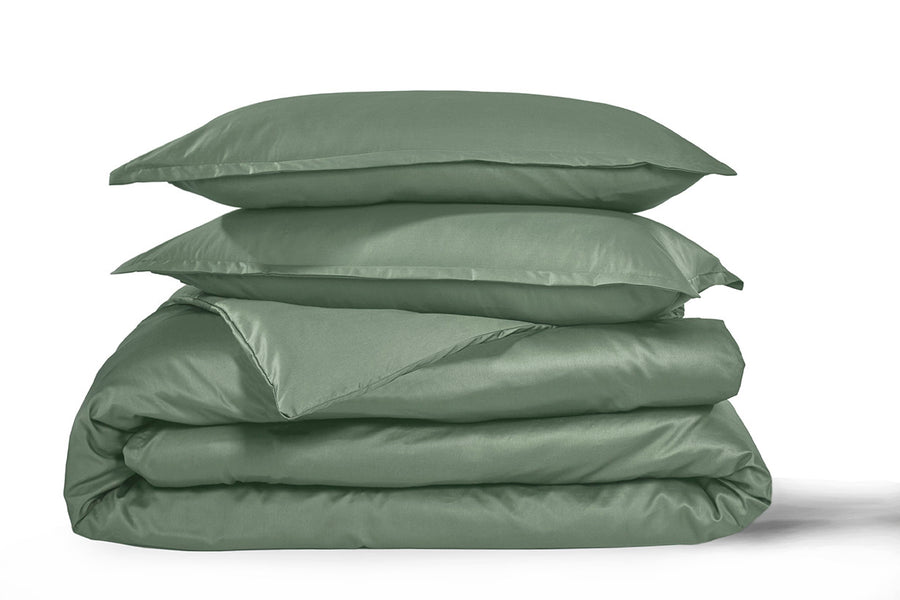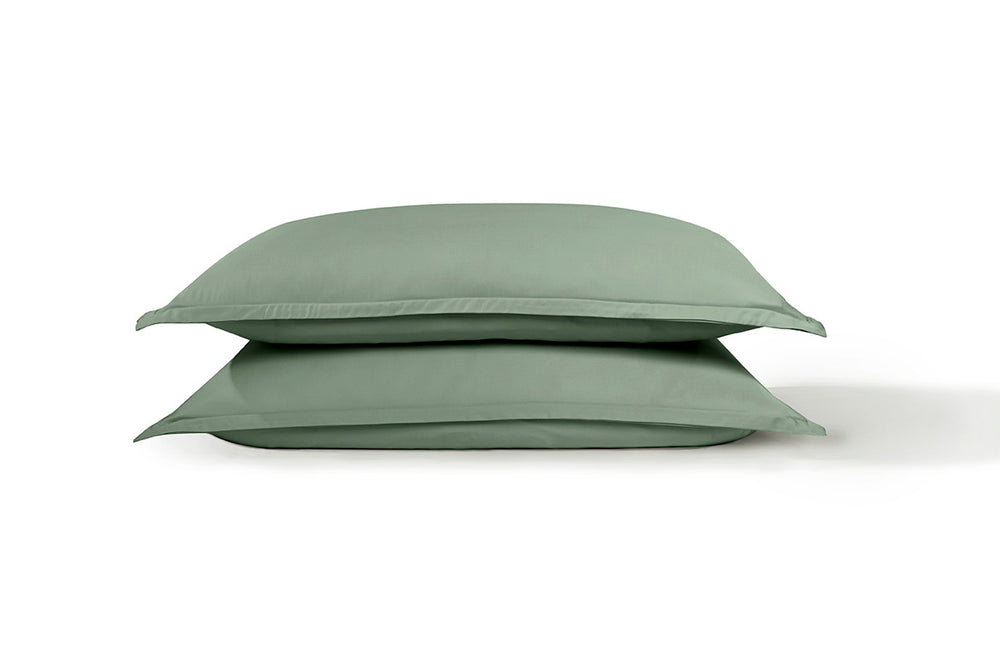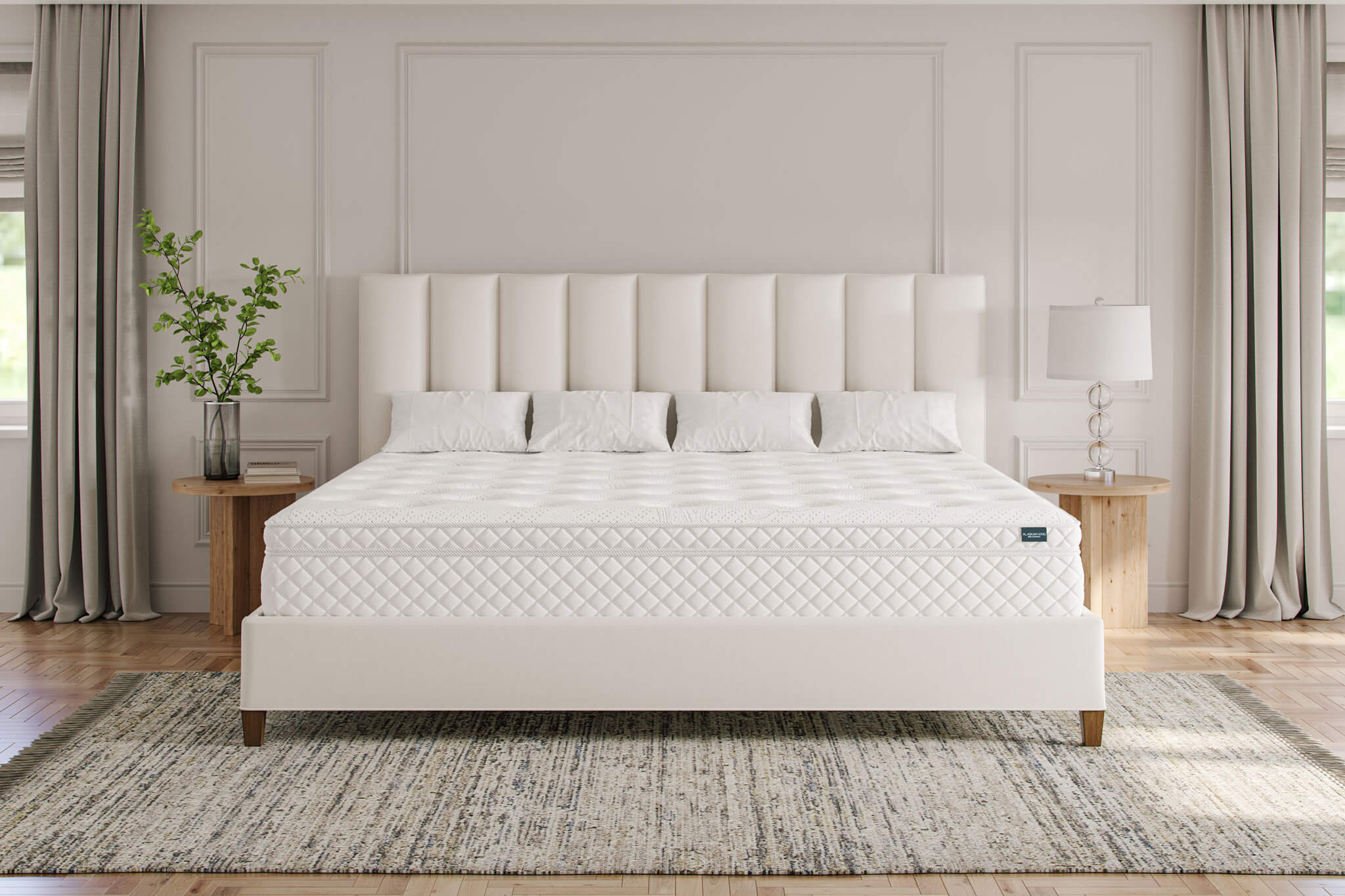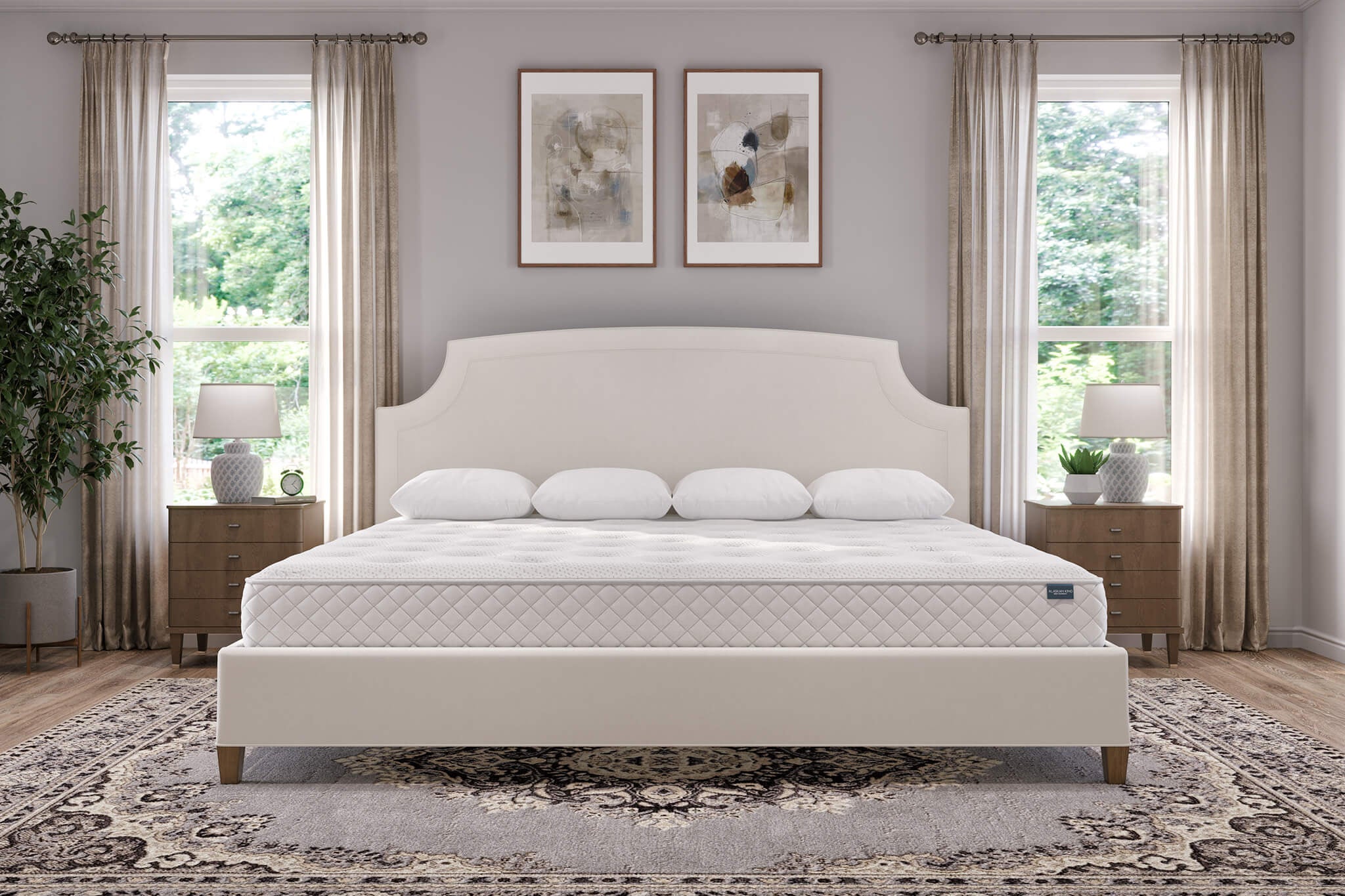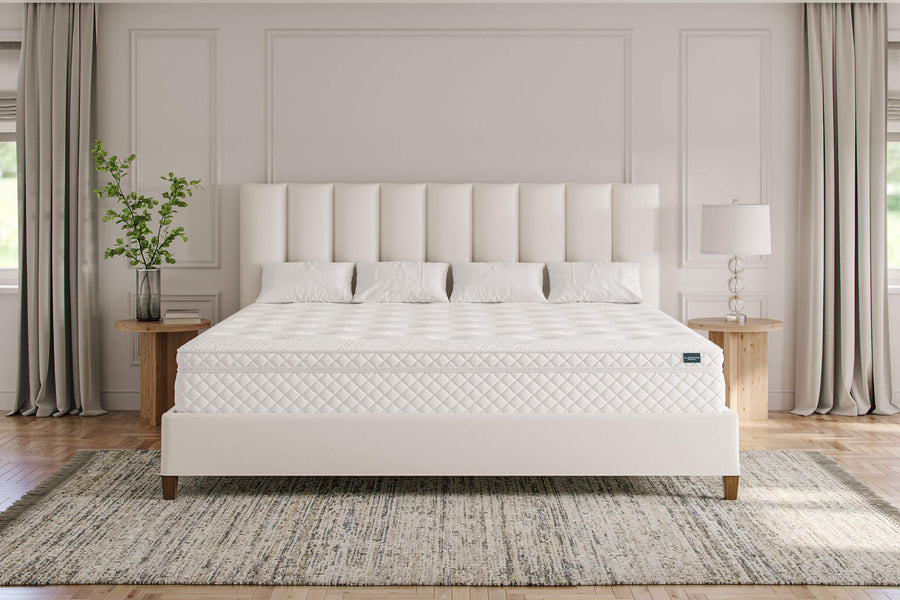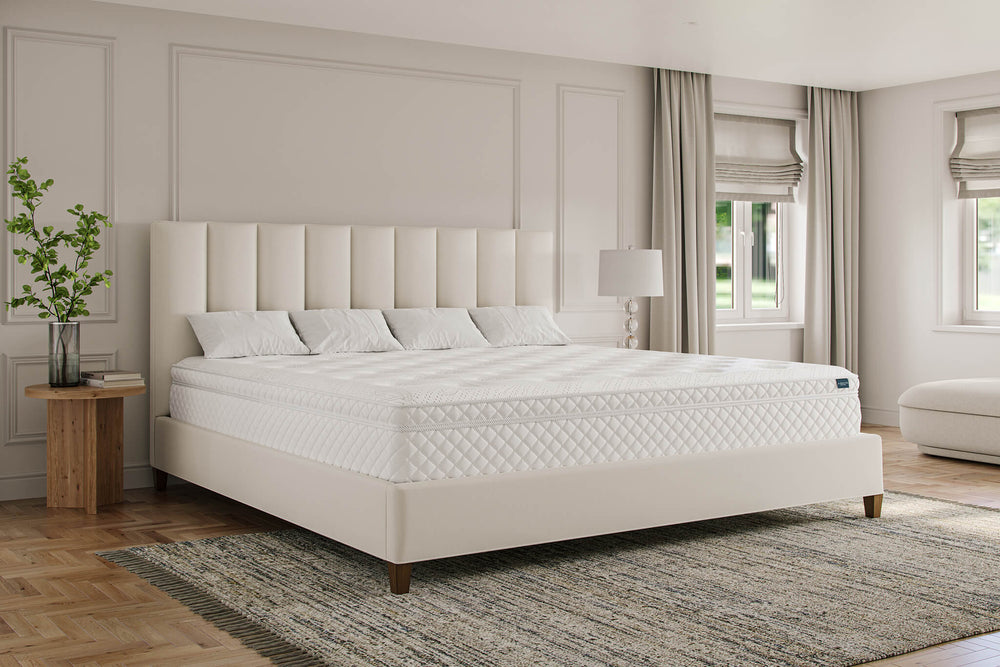How to Sleep Better When You Have Allergies
Spring is one of the most beautiful seasons, but it can be a nightmare for people with allergies. Millions of Americans struggle with symptoms like runny nose, sneezing, and itchy or watery eyes every year. As a result, they may have difficulties falling and staying asleep.
Research shows that having allergic rhinitis (allergies) significantly affects sleep quality. As a consequence of poor sleep, people tend to feel sleepy, tired, moody, and have worse memory the following day.
If you are one of the people struggling to get a good night’s sleep because of allergies, there may be a solution. Here, we give you a list of things you can try to minimize your allergy symptoms and get the sleep you deserve.

1. Seal Off Your Bedroom
Pollen is the main trigger of seasonal allergies, but you can try to keep it outside by closing your bedroom door and windows. That way, you minimize the amount of pollen entering your bedroom, keeping it a relatively allergen-free zone.
2. Buy an Air Purifier
You can’t keep your bedroom windows shut at all times, as you need to let the fresh air in sometimes. That’s when pollen enters your bedroom, and you need a way to eliminate it quickly.
Getting an air purifier can help you get rid of pollen, dust mites, pet dander, mold, and other allergens harboring in your bedroom. These devices come in all shapes and sizes, but there are several things you need to consider when buying one.
Your air purifier must include a true HEPA filter to eliminate most air pollutants. In addition, it should be quiet, have an option to dim the lights on the screen, and have an app with a user-friendly interface. The last thing you’ll want is to leave the comfort of your bed to turn it on and off, so having an option to change the settings on your phone is vital.
3. Take Your Clothes Off When You Enter the House
Switching up your laundry routine helps to minimize your allergy symptoms. For instance, pollen falls on your clothes when you spend time outside. Even if you toss the clothes on the bedroom floor or a chair next to your bed, some pollen will end up in the air, causing allergy symptoms.
The best approach is to remove your clothes as soon as you enter the house and put them straight into the laundry.
Nice spring weather may also tempt you to hang your clothes outside to dry. You shouldn’t do this because pollen will stick to your clothes, making your allergies worse. Instead, use a dryer.
4. Stay Hydrated
Our bodies are complex systems that need food and water to run efficiently. Staying hydrated throughout the day can help loosen nasal mucus. In addition, it ensures your nasal passages remain wet, which prevents the allergies from getting worse.
So, staying hydrated can make your runny nose more bearable, making it easier to fall asleep. Just make sure you don’t drink too much water before bedtime, as it guarantees a night trip to the bathroom.
5. Take a Shower Before Going to Bed
Most people take a morning shower, but changing this habit during allergy season can have some benefits. Your clothes aren’t the only places where pollen hides. It’s also in your hair and everywhere else, so a good shower before bed can help wash the pollen away.
In addition to getting rid of allergens, a warm evening shower is also an excellent way to decompress and get in a relaxing bedtime mood, which could help you fall asleep more quickly.
6. Flush Your Sinuses
A great way to relieve your runny or stuffy nose is to rinse your nasal passages just before going to bed. You can use a neti pot with saline solution or nasal sprays, as both options have been proven to help with congestion.
Many people also struggle with itchy eyes, so you can use baby wipes to clean your eyelids before bedtime. That will clear the microscopic pollen from your eyes and stop the itching.
7. Clean Your Pet Regularly
When your pets play outside, pollen and other allergens stick to their fur. That’s why some experts recommend keeping your furry friends away from your bedroom during the high pollen season. However, sleeping with your pet has many benefits, so we advise a different approach.
Use a towel to clean their paws as soon as you enter the house and clean their fur with pet wipes. This quick routine can help eliminate most allergens, allowing your pets to sleep alongside you.
8. Use a Humidifier
If the air in your home becomes too dry, it can worsen certain allergy symptoms like a blocked nose or cough. You can try sleeping with a cold mist humidifier that keeps the optimal humidity levels to prevent that. Doing this will ensure your air pathways stay moisturized and reduce allergy symptoms.
9. Talk to Your Doctor
If your allergy symptoms don’t seem to go away, even after trying all things from this list, it’s time to talk to your doctor. They can recommend allergy medication and nasal sprays that can eliminate most symptoms. In addition, a medical professional can determine what allergens trigger you, which is valuable information because you can avoid them in the future.
So, don’t be afraid to talk to your doctor and take advantage of the best medical solutions to relieve allergy symptoms.
10. Minimize Stress
Stress can keep you up at night and make it harder to fall asleep. Studies reveal that people with higher perceived stress levels experience more allergy flare-up episodes. So, if you want to improve your sleep and reduce allergy symptoms, you should try to minimize stress.
You can do that by incorporating relaxing activities into your bedtime routine. For example, you can try reading, meditating, doing deep breathing exercises, tending to a hobby, or doing any other activity that helps you unwind.
A relaxing bedroom environment is also vital, and having a big and comfy bed is a significant part of it. If we’re talking big, the Alaskan King bed is as big as it gets.
You can find Alaskan King bed frames and mattresses at our online store, all available in six family sizes. The quality and comfort of our top-rated beds will help you relax and make sleeping with allergies more bearable.


